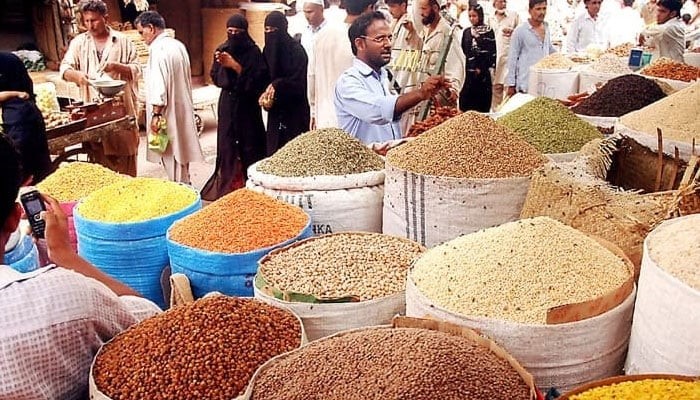Since the last few decades, Pakistan has faced many significant challenges: domestic political instability, higher rates in developed markets hitting capital inflows, severe external financing challenges, and the country’s largest export markets facing recession. However, all these problems remain a cherry on top of Pakistan’s biggest problem: the high and unstable inflation rate. Pakistan, unfortunately, has been experiencing inflation for a prolonged period, and it has been a significant challenge for the country’s economy.
The government’s failure to control inflation has had far-reaching consequences for Pakistan’s citizens, businesses, and overall economic development. With weekly inflation recently hitting record highs, a rise in the prices of essential items (if it exceeds income growth) can be a death knell for the poor, both literally (for subsistence households), and indirectly, due to the inability to afford needed medical and health spending- even forcing parents to choose between whether their child goes to school or works. High oil, gas, and commodity prices, since the wake of the Ukraine war, have fuelled inflation and dampened growth.
This complemented by unparalleled floods has further worsened the situation in Pakistan. Large areas under rice, cotton and vegetable crops have been destroyed and the floods have caused massive destruction and damage to roads and bridges. Consequently, supply-side pressures will further escalate inflation which may persist at least till the end of this year.
As a result, food price inflation has also emerged as the main economic challenge for Pakistan. This harms growth and reduces the purchasing power of people. This crisis has already been and will keep on pushing many people into poverty. This is because less attention is being given to problems like structural flaws, ineffective coordination between the federal and provincial governments, weak enforcement of laws prohibiting high market pricing, and unfair business activities like hoarding and disrupted supply chains.
Depreciation of the rupee should be equally held responsible for the high rate of inflation as well. The political instability in the country over the past few months also impacted the currency devaluation. Pakistan is a net importer of food items so the depreciation of the rupee increased the prices of food commodities. This fall in the value of the rupee has led to increases in other forms of imported inflation as well. The impact of the large budget deficit during the previous years can be seen now. The budget deficit as a percentage of GDP being more than double what was agreed with the IMF would have eventually always meant more money chasing fewer goods.
Inflation in Pakistan has been a persistent problem that has negatively impacted the economy and the lives of its citizens. The government’s failure to address this issue has been a major cause of concern. Careful coordination of monetary and fiscal policies is required and should be implemented effectively and efficiently. Additionally, the government needs to ensure transparency and accountability in its policies to build trust and confidence among the citizens and the business community with the involvement of different stakeholders in the decision-making process. Only then, can Pakistan escape this dangerous plague of inflation and eventually achieve sustainable economic growth. It is rightfully stated, “Inflation is taxation without legislation.” – Milton Friendman.
The writer is a student of A-levels at Aitchison College, Lahore.










